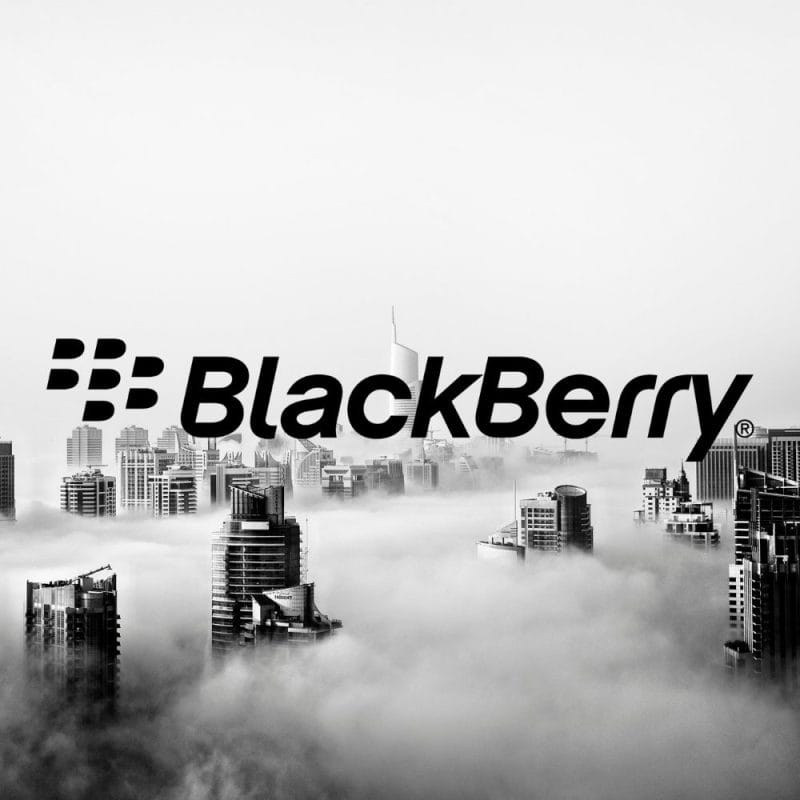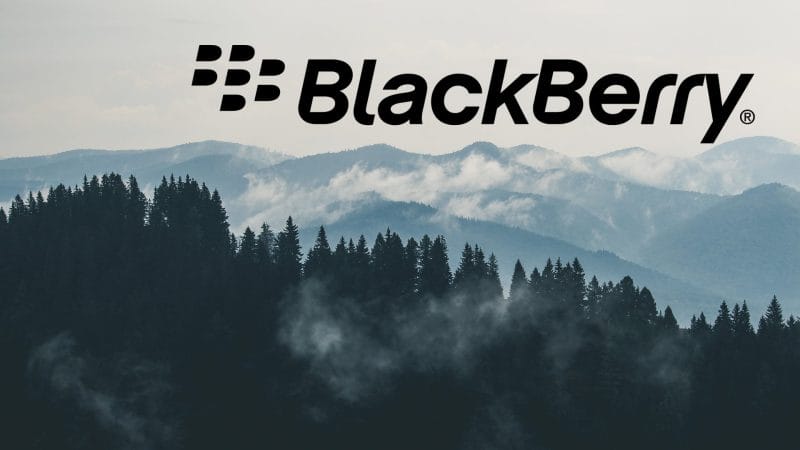
Blackberry Limited (BB.T) is a Canadian cybersecurity company specializing in enterprise critical event management solutions, endpoint protection, and securing the Internet of things (IoT) by utilizing artificial intelligence (AI) and machine learning against cyberthreats. With this in mind, the Company provides intelligent security software and services to enterprises and governments around the world. Based in Waterloo, Ontario, BlackBerry secured more than 500 million endpoints including over 195 million vehicles.
BlackBerry is a leader in the areas of endpoint management, endpoint security, encryption, and embedded systems. The Company’s portfolio of products is intended to address these areas of concern. Some of BlackBerry’s products include BlackBerry Jarvis, BlackBerry Alert, QNX Hypervisor, and BlackBerry AtHoc. However, BlackBerry isn’t just committed to cybersecurity. The Company is also doing its part to preserve our planet through various environmental sustainability initiatives.
Latest News
On December 14, 2021, BlackBerry announced that it has achieved carbon neutrality across Scope 1, Scope 2, and material Scope 3 emissions, the three groups that categorize the emissions a company creates, as classified under the Greenhouse Gas (GHG) Protocol Corporate Standard (GHGPCS). For context, the GHGPCS provides requirements and guidance for companies and other organizations preparing a GHG emissions inventory, a list of emission sources and their associated emissions.
“Businesses are key to building a more sustainable and equitable today and tomorrow…BlackBerry is proud to have achieved carbon neutrality, invest in carbon removal, and partner with customers to reduce their carbon footprints through our cloud-based solutions,” said Neelam Sandhu, SVP & Chief Elite Customer Success Officer, BlackBerry.
Referring back to the GHGPCS, this initiative helps companies prepare a GHG inventory that represents a true and fair account of their emissions through the use of standardized approaches and principles. In doing so, the GHGPCS provides businesses with information that can be used to build an effective strategy to manage and reduce GHG emissions. With that out of the way, what are the three ‘scopes’ outlined in the GHGPCS? The aforementioned scopes are as follows:
- Scope 1: direct emissions from owned or controlled sources
- Scope 2: indirect emissions from the generation of purchased energy
- Scope 3: emissions that occur in the value chain of the reporting company, including both upstream and downstream emissions
Keep in mind, most of the largest companies in the world now account for and report on the emissions from their direct operations including Scopes 1 & 2. However, Scope 3 emissions, also referred to as value chain emissions, often represent the majority of an organization’s total GHG emissions. For example, Kraft Foods found that value chain emissions comprised more than 90% of the company’s total emissions. With this in mind, BlackBerry has achieved carbon neutrality across Scope 1, Scope 2, and material Scope 3 emissions.
Carbon neutrality occurs when an entity’s carbon emissions have been balanced out by funding an equivalent amount of carbon savings elsewhere. These savings can be generated through funding renewable energy projects and energy efficiency projects. With this in mind, BlackBerry has achieved several environmental sustainability milestones, including partnering with the Restore the Earth Foundation in the United States to help reforest the Mississippi River Basin.
Milestones
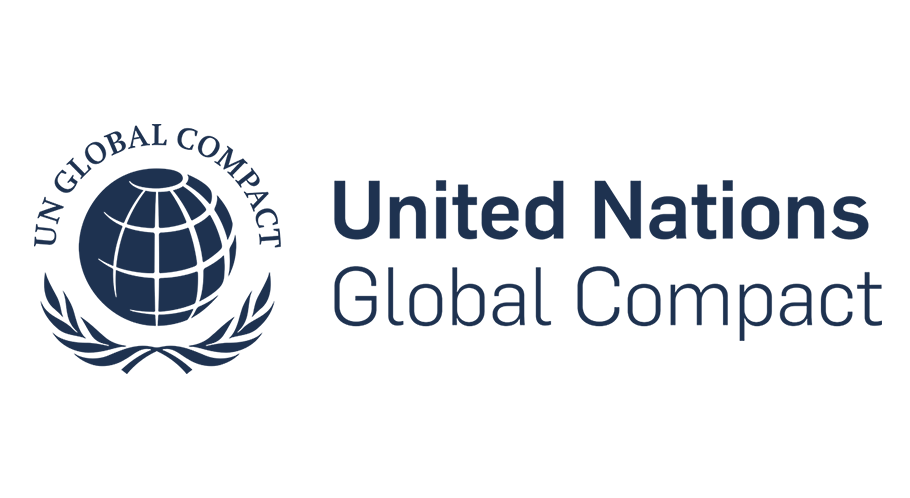
Additionally, the Company has invested in advanced wastewater treatment technology in Canada, which eliminates the environmental impacts of traditional systems while consuming less energy. BlackBerry has also partnered with School Boards in Canada to implement energy-efficient measures such as enabling climate change related education programs. Outside of North America, BlackBerry has invested in innovative cookstove technology in Rwanda, which significantly reduces non-renewable fuel consumption and relieves deforestation pressures.
Lastly, BlackBerry has committed to the United Nations Global Compact (UNGC), a voluntary initiative based on CEO commitments to implement universal sustainability principles. Ultimately, the UNGC aims to support companies in doing business responsibly by aligning their strategies and operations with the Ten Principles of the UNGC, which are comprised of human rights, labor, environment, and anti-corruption principles. In summary, the UNGC provides a principle-based framework, best practices, and resources to ensure companies do business responsibly and keep their commitments to society.
Internally, BlackBerry was able to reduce its emissions by moving company and customer workloads to the cloud. For example, the Company’s customers are deploying BlackBerry’s cloud-based solutions, including BlackBerry UEN Cloud, BlackBerry Optics 3.0, and BlackBerry Workspaces. Additionally, BlackBerry has reduced its direct and indirect emissions throughout its operations by 88% since 2013, across company facilities, energy consumption, business travel, and waste management, to name just a few.
“We are delighted to partner with BlackBerry to help them accomplish their environmental sustainability goals…Their proactive approach to carbon emission reductions is commendable, and their partnership with Restore the Earth and ClimeCo will also have meaningful impacts on the ecological landscape where the restoration is taking place…
The reforestation that will occur as a result of this partnership will ensure that biodiversity, critical habitats, and communities are enhanced and supported in self-sustaining systems,” said PJ Marshall, Executive Director of Restore the Earth Foundation.
Restore the Earth Foundation
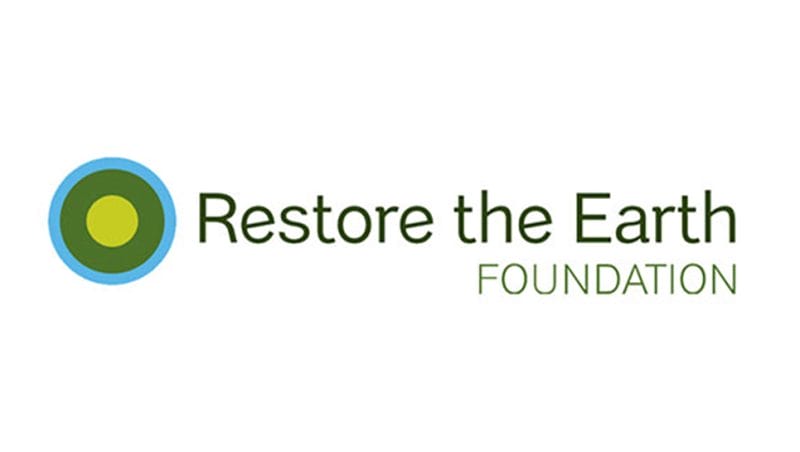
As previously mentioned, BlackBerry is working with the Restore the Earth Foundation (REF), a non-profit corporation on a mission to restore the Earth’s essential forest and wetland ecosystem. In doing so, the Company is working with the REF to help reforest the Mississippi River Basin, commonly referred to as “North America’s Amazon.” With this in mind, the Mississippi River Basin is the third largest watershed on Earth, encompassing over 40% of the contiguous United States, spanning 31 states and two Canadian provinces.
The southernmost region of the Mississippi River Basin is the most ecologically degraded region in North America. Originally, the Mississippi River Basin accounted for 24 acres of forest, however, only 5 million acres remain. Despite this, millions of people depend on the benefits it provides, including national and international commerce, transportation, recreation and tourism, hurricane defense, and climate change mitigation, among others.
That being said, BlackBerry will assist REF in the restoration of 1 million acres, thereby reducing America’s climate footprint by an estimated 2% Carbon Dioxide Equivalent (C02e). In doing so, the Company will aid in reversing the dead zone in the Gulf of Mexico, creating jobs, and improving livelihoods. Furthermore, BlackBerry has acknowledged that the technology sector has a pivotal role to play in responding to the climate crisis. After all, the technology sector is responsible for 2-3% of global carbon emissions. However, BlackBerry recognizes that digital transformation has the potential to separate economic growth from carbon emissions growth.
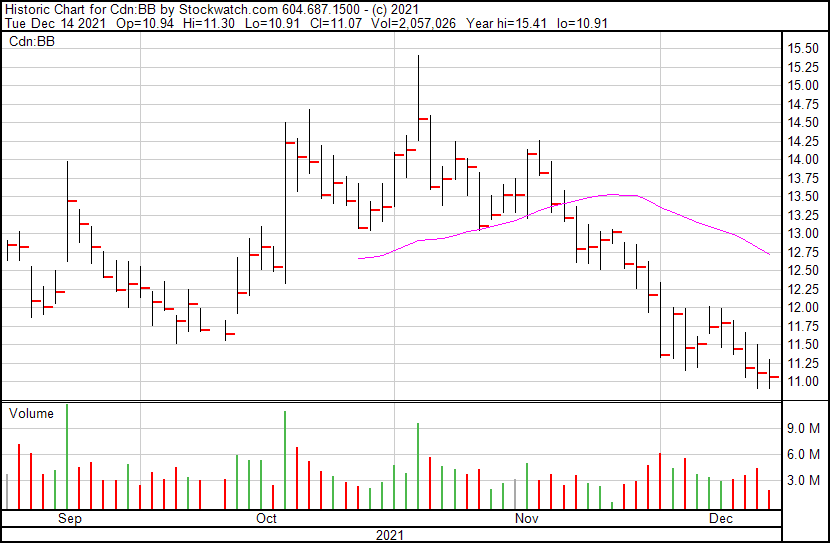
BlackBerry’s share price opened at $10.94 and is currently trading at $11.04 as of 12:16 PM EST.

